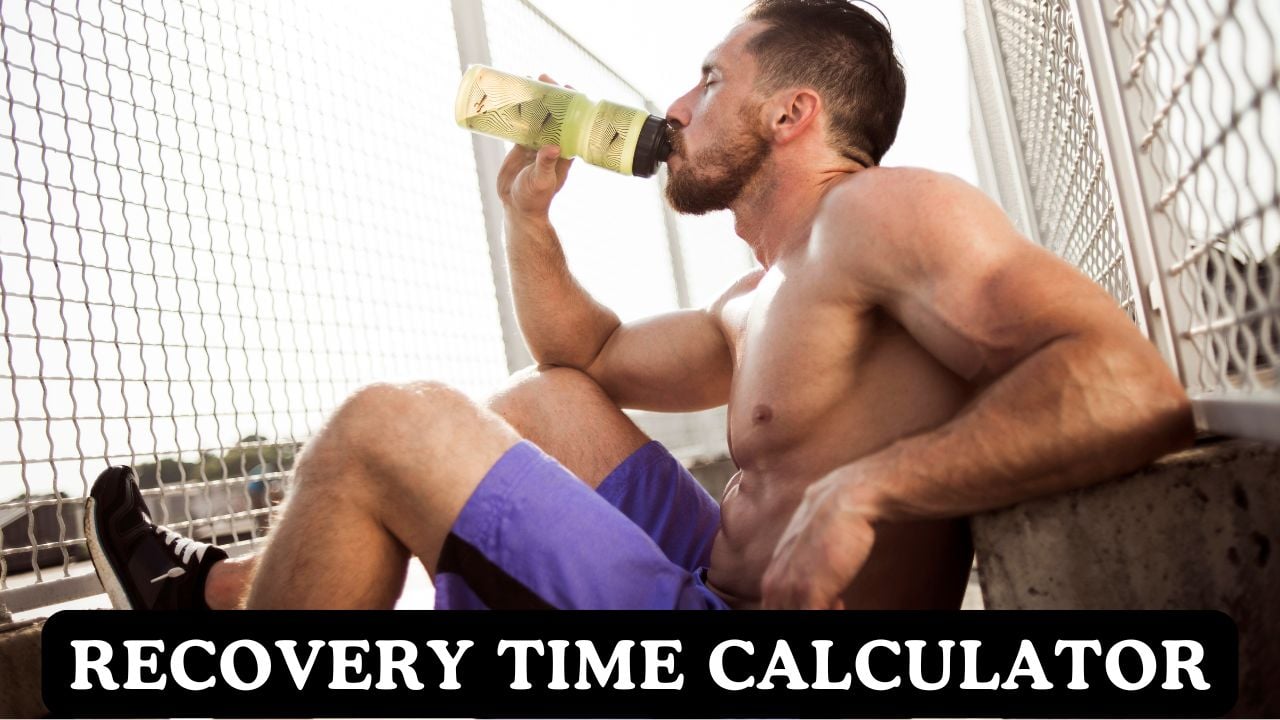Recovery Time Calculator
Advanced recovery analysis using heart rate recovery science for optimal training planning

KnowThe Recovery Time
What is Heart Rate Recovery?
Heart rate recovery (HRR) measures how quickly your heart rate returns to normal after exercise. It’s a powerful indicator of cardiovascular fitness and autonomic nervous system health. Research shows that faster heart rate recovery correlates with better cardiovascular health and lower risk of heart disease. Learn more about fitness benefits and exercise to understand how proper recovery enhances overall health.
Training Stress & Recovery Balance
Optimal athletic performance requires balancing training stress with adequate recovery time. Too much training without proper recovery leads to overtraining syndrome, while too little training doesn’t provide sufficient stimulus for improvement. Our calculator helps you find the perfect balance by analyzing your workout intensity, duration, and individual recovery factors. Discover effective muscle recovery techniques to optimize your training results.
Recovery Time Calculation Methodology
Heart Rate Recovery Analysis
| Formula Component | Calculation | Purpose |
|---|---|---|
| Heart Rate Reserve | Max HR – Resting HR | Exercise capacity range |
| Exercise Intensity | (Avg HR – Resting HR) / HRR × 100% | Workout effort level |
| Training Stress | Duration × Intensity × Workout Factor | Recovery demand |
| Recovery Time | Base × Age × Fitness × Sleep × Type | Optimal rest period |
Karvonen Method: Our calculations use the scientifically validated Karvonen method for determining exercise intensity based on heart rate reserve, providing more accurate results than simple percentage of maximum heart rate.
Individual Recovery Factors
| Factor | Beginner | Intermediate | Advanced | Elite |
|---|---|---|---|---|
| Fitness Level | 1.4x (needs more recovery) | 1.1x | 0.9x | 0.7x (recovers faster) |
| Age (years) | <25: 0.9x | 25-45: 1.0-1.1x | 45-55: 1.2x | >55: 1.3x |
| Sleep Quality | Excellent: 0.8x | Good: 0.9x | Average: 1.1x | Poor: 1.4x |
Personalized Recovery: Your recovery time is adjusted based on your age, fitness level, and sleep quality. Elite athletes recover faster due to superior autonomic nervous system function and cardiovascular adaptation.
Recovery Optimization Strategies
Active Recovery Techniques
| Technique | Best Time | Duration | Benefits |
|---|---|---|---|
| Light Walking | 0-24 hours post-workout | 20-40 minutes | Increases blood flow, reduces soreness |
| Easy Swimming | 24-48 hours post-workout | 15-30 minutes | Low-impact cardio, maintains fitness |
| Yoga/Stretching | 12-72 hours post-workout | 20-45 minutes | Improves flexibility, reduces tension |
| Foam Rolling | 24-48 hours post-workout | 10-20 minutes | Breaks up muscle knots, improves mobility |
Active Recovery: Light activities during recovery periods can accelerate healing by improving circulation and reducing muscle stiffness without adding training stress.
Nutrition for Recovery
| Nutrient | Timing | Sources | Benefits |
|---|---|---|---|
| Protein | Within 30-60 min post-workout | Chicken, fish, eggs, Greek yogurt | Muscle repair and growth |
| Carbohydrates | Within 30-60 min post-workout | Sweet potatoes, rice, fruits, oats | Glycogen replenishment |
| Hydration | Throughout recovery period | Water, electrolyte drinks | Cellular repair and toxin removal |
| Anti-inflammatories | Daily during recovery | Berries, fatty fish, turmeric, ginger | Reduce inflammation and soreness |
Recovery Nutrition: Proper nutrition during recovery is crucial for muscle repair, glycogen replenishment, and overall adaptation to training stress.
Scientific Research & Recovery Studies
Heart Rate Recovery Research
Studies published in the Annals of Noninvasive Electrocardiology demonstrate that heart rate recovery is a reliable predictor of cardiovascular health and training adaptation. Research shows that individuals with delayed heart rate recovery have increased risk of adverse cardiovascular events, while faster recovery indicates better autonomic nervous system function and cardiovascular fitness.
Overtraining Prevention
Research from sports medicine journals confirms that inadequate recovery between training sessions leads to overtraining syndrome, characterized by decreased performance, fatigue, and increased injury risk. Our recovery calculator helps prevent this by providing evidence-based rest period recommendations based on workout intensity, duration, and individual factors. Learn about effective core strengthening exercises to build resilience and prevent overtraining injuries.
⚕️ Important Safety Notes for Recovery Planning
This recovery time calculator provides estimates based on validated exercise physiology research and should be used as a general guide for training planning. Individual recovery needs can vary significantly due to factors like genetics, medical conditions, medications, and environmental stress. Always listen to your body and consult with healthcare professionals before making significant changes to your training routine, especially if you have pre-existing health conditions or are returning to exercise after illness. The recommendations provided are for educational purposes and general guidance only.
